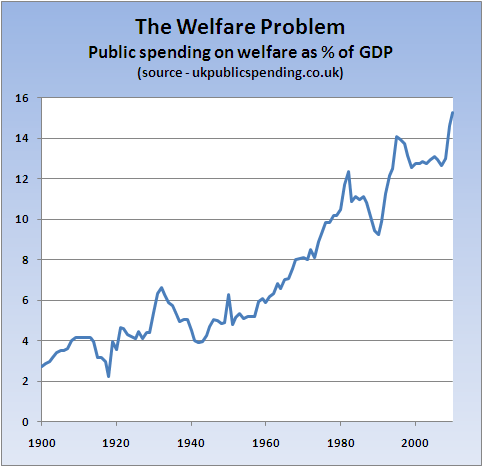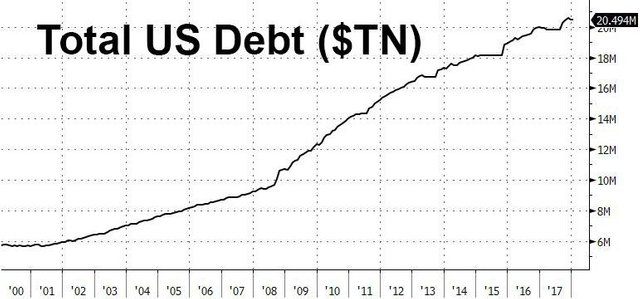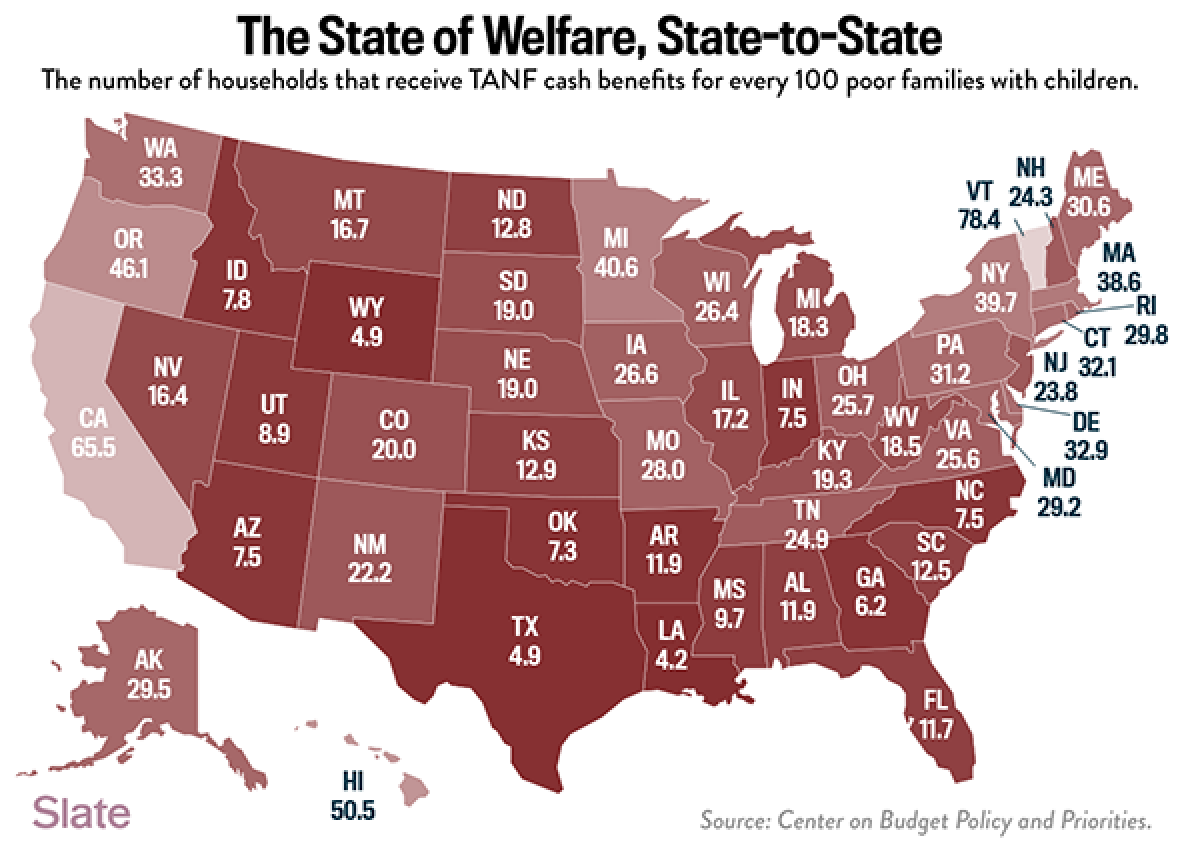The Problem With The Welfare State

Most of the aid that people receive in America today is 'unconditional' meaning that recipients are not required to do much of anything to get it, thus they are seldom, if ever, expected to take steps to avoid continued dependence. For instance, if some effort on recipients’ part were required to receive welfare in the first place, then they may be more inclined to work a little harder in an effort to receive a little more; however, if nothing is required to delve deep into their taxpaying neighbors’ pockets, then why not sit home, relax, and settle for that?
Programs such as food stamps, unemployment insurance, and public housing foster long-term dependency, which is often passed on from one generation to the next. Charles J. Sykes in his book A Nation of Moochers said it well, “The result is that for millions of Americans, dependency as a way of life means that their plans for the future are not focused on themselves…but rather on their continuing access to Other People’s Money (OPM), even if those other people are running out of it.” It is clear that these programs are currently no longer about curbing hunger and the like, but rather providing a constant source for providing a somewhat permanent economic safety net.
The 'poor' in this country tend to have accoutrements that royalty in most countries could have only dreamed about 100 short years ago. These extravagances include multiple big screen color TVs, air conditioning, dishwasher, DVD players, cell phones, desktop computer, broadband Internet connection, the latest game console, SUVs, health club membership, vacation home, etc, etc. Maybe they are deprived compared to the top 1% of wage earners, but compared to the rest of the world, they live like royalty.
Thomas Sowell wrote that rather than refer to the “haves and have nots,” it would be more accurate to describe the situation in present day America as the “haves and have lots.” This is especially true when one considers how much free time they have since they are not working, which provides for vacations to Hawaii and other such popular destinations. This is no joke, a Medicaid patient recently told me that they needed their prescriptions right away because they had to catch a plane to Hawaii for vacation.
About one-half of means-tested welfare payments go to low-income elderly in nursing homes or the disabled, and thus are relatively uncontroversial. The other half go to able-bodied adults and their children, however. Few politicians address what percentage of these people are 'poor' as a result of their own poor choices including lack of education, poor employment records, having children out of wedlock, or other such self-induced poverty. Due to the fact that our national debt is over a $21 trillion, which is largely due to our ever expanding dependency culture, what we need to do is begin to differentiate between needs, wants, and rights.

Entitlements used to provide basic needs to the destitute. Now it seems, as I watch them go through the grocery line, the 'poor' eat a hell of a lot better than I do. Mr. Sykes writes that taxpayers have shelled out “$15.9 trillion on various forms of means-tested welfare sine the War on Poverty began.” He continues, “Adjusted for inflation, we now spend thirteen times as much on welfare as we did when Lyndon Johnson launched the poverty war.” He adds that President Obama’s 2011 budget increased welfare spending by “42 percent over 2008 spending levels, bringing spending on the poor to nearly $1 trillion a year.”
One-half of all births in the United States are covered by Medicaid. Most of these taxpayer-funded births occur to unmarried women with little or no education or skills. (No word on how many of these births are to women who are in this country illegally.) In a sane world, this single statistic ought to be regarded as a disgraceful embarrassment. Sadly, the stigma associated with accepting free handouts has all but been obliterated, and in fact the pendulum has swung so far the other way that now it is practically a badge of honor where recipients are positively proud to be on welfare, and are even boastful of it!

King Willem-Alexander delivered a message to the Dutch people from his government a while back in a nationally televised address stating that, “The welfare state of the 20th century is gone. In its place a ‘participation society’ is emerging, in which people must take responsibility for their own future and create their own social and financial safety nets, with less help from the national government.” Willem-Alexander said that nowadays, people expect and "want to make their own choices, to arrange their own lives, and take care of each other."

So the question becomes, how do we change the entitlement culture in this country, and thus salvage it from bankrupting dependency? It should be a three-pronged attack. First, we must have gutsy politicians willing to make the tough decisions vis-à-vis cut backs on multiple welfare programs. Secondly, we must reintroduce a certain degree of shame associated with accepting handouts and attach a stigma to accepting taxpayer funded welfare. Finally, we need to encourage a culture of accomplishment and self-reliance. We must make it desirable and rewarding for one to pull his or her own weight. In accordance with this, we need to educate the masses on just how relying more and more on fewer and fewer of their neighbors to pull the wagon can result an eventual disastrous outcome.